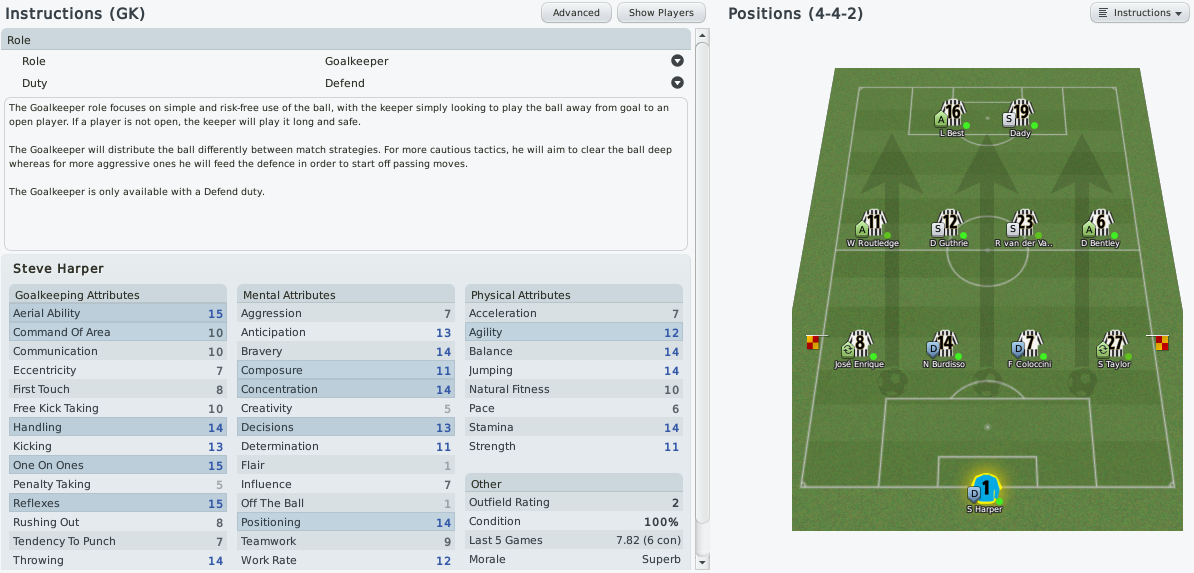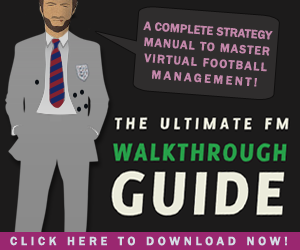-
Recent Articles
Building Your Defence: Full Backs
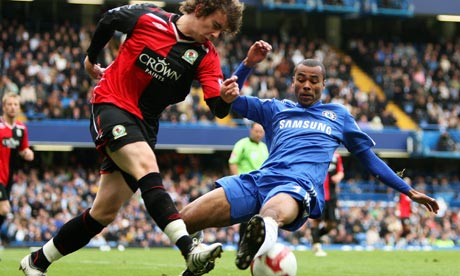 The modern full back is quickly becoming one of the most important players on the team sheet, infact even back in the days of Brian Clough, fat ed' argued that because of the space these players get in the final...
The modern full back is quickly becoming one of the most important players on the team sheet, infact even back in the days of Brian Clough, fat ed' argued that because of the space these players get in the final...False Nine Tactics
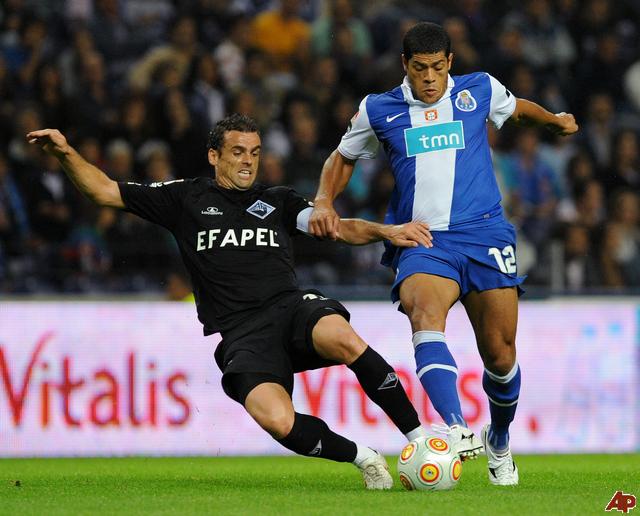 When we think about modern football trends, we think about the fall of the 4-4-2, the introduction of inverted wingers and the rise of the 4-5-1. But there is one other tactical rise that seems to have...
When we think about modern football trends, we think about the fall of the 4-4-2, the introduction of inverted wingers and the rise of the 4-5-1. But there is one other tactical rise that seems to have...An Open Letter To The Football Manager Community
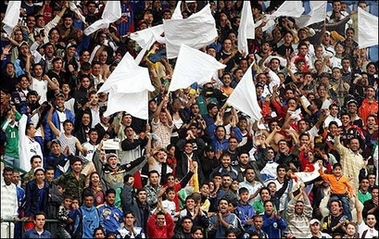 To view Sports Interactive's response, click here FM-Britain will no longer be producing regular content. Sports Interactive have objected to our content model of charging for annual strategy guides,...
To view Sports Interactive's response, click here FM-Britain will no longer be producing regular content. Sports Interactive have objected to our content model of charging for annual strategy guides,...How Will Jose Mourinho Manage at Real Madrid? (Part 7)
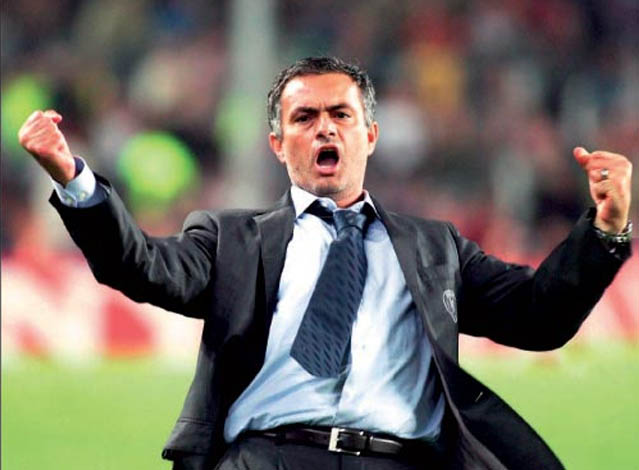 Last time around I showed you the gaping holes in my tactical plan. Against smaller teams, my players were not imposing themselves enough on the game, nor were they able to break through more disciplined...
Last time around I showed you the gaping holes in my tactical plan. Against smaller teams, my players were not imposing themselves enough on the game, nor were they able to break through more disciplined...From Giant to Underdog: Managing a Bulgarian Powerhouse (Part 3)
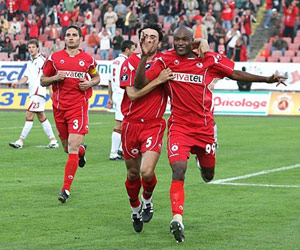 After setting the tactics for our team in the previous post, we'll look how they are going to play out in a game situation. Our first friendly will give us a chance to see how our players will handle the tactics. The...
After setting the tactics for our team in the previous post, we'll look how they are going to play out in a game situation. Our first friendly will give us a chance to see how our players will handle the tactics. The...
JOIN 12,748 READERS - SUBSCRIBE NOW TO OUR FOOTBALL MANAGER NEWSLETTER
Get the latest FM news & best community content delivered directly to your e-mail inbox!
Things That I Have Learned In Madrid
Written by: Gareth Millward
Category: Strategy
Posted on: July 28, 2008
July 28, 2008
Introduction
One of the most interesting things I’ve noticed about my current save with Rayo Vallecano de Madrid in Spain’s third tier is the little things. Not the more general game-by-game experience of management, or the philosophy of tactics, but the little things that we always get told happen in the game but never really notice until they happen to us. Little things like squad gelling, player scouting, coping with injuries. The sorts of things that we at FM-Britain write guides about. What happens when they crop up in our games?
My current save which is presently in the final third of its second season has seen quite a few of these interesting little events. It’s a save which has gone well, but not spectacularly so, had major problems to overcome, but certainly not any so major that they were un-overcome-able. It’s been a good, solid game with a few things to think about. So, what problems, how have I overcome them. Have I overcome them?
These short infrequent articles are designed as a cross between the usual “guide” format of FM-B articles and the “Project” style which I think has perhaps become almost synonymous with Cleon’s Sheffield United Projects of FM07 and FM08. Rather than diarise my entire game, however, I’ve broken my game up thematically with the problems I’ve encountered and the thought processes and pieces of advice for how I have (or, perhaps in hindsight, should have) attempted to counter them.
To start with, a little background: I called Rayo Vallecano de Madrid the capital’s “fourth team”. Strictly speaking, that’s not entirely true. Rayo have, by tradition, hovered mainly in Spain’s Segunda, occasionally spending the odd year in the top flight and, even more occasionally, slumming it in the third tier. In 2003 they got relegated from the Primera and promptly fell straight through it into Division 2B - for the first time in nearly 50 years. They’ve had trouble getting out, and by FM2008 they are making their fourth attempt at promotion. Their bank balance and average crowds have suffered, but they are still by far one of the best sides at this level.
Of course, because of all this Rayo are actually in the same division as the B sides from Real and Athletico, their more powerful Castillian cousins. And, in my first season Castilla (Real Madrid B) got promoted. So, as I write this in my game world, Rayo are the fourth best Madrid team. Behind Athletico and Real Madrid… twice.
Squad Gelling
Squad gelling is actually a big part of FM08, much more so than in previous versions. I can’t ever remember it being too much of an issue (for me, at least) taking over a new club and bringing in new players. This time however, there is a noticeable “getting to know you” period for the club as they get used to your personality, tactics and new signings.
The above screen shot shows my first few months at Rayo up until late November. The red line shows the point (about 5 league games in) where I felt a noticeable improvement in my team’s performance. I could see the players playing to my tactics much more cleanly and saw my players making far fewer mistakes. As you can see, my results improved noticeably too.
Results were even better after the Winter break. The second screenshot shows the results for the last half of the season (continuing straight after the Athletico B game from the previous screen).
Unfortunately, there’s little you can do to encourage squad gelling. You can get players on your side by praising them or criticising them, but ultimately all you can do is try not to retard the gelling process. I brought in two players. Not a hell of a lot (certainly far fewer than I would have done in ’07), but it still took a while to get the team playing well.
The “natives”, so to speak, got into their groove pretty well. My two signings, however, took a little longer. One was a DMC, and in my tactic these guys tend to play bog-standard 7s all the way. Not too many goals or assists, but very high pass completion, so it’s easy to get a 7, but difficult to go beyond. This affects confidence and the ability to interact with them. The DMC, thankfully, played every game and was even my vice-captain due to his age, influence and determination, helping him to settle (though that decision could easily have backfired). By the 10 game mark he was pretty much undroppable, playing consistently well, and mentioned by the fans as a good signing. The other signing was a utility forward, able to play AML, AMR and AMC, though usually at AMC. As he was new, he didn’t fit immediately into my first team, and when he did he got injured. However, his general skill and versatility made him an excellent sub. He regularly came on and played 7s and 8s, but at the same time also played 6s. It took much longer for him to establish himself in the side, though due to his impressive performances he soon became a favourite of the fans. It wasn’t until after the Winter break, however, that he made himself almost integral to the side, but he was the guy I always brought on with 35 minutes to go to replace tired players or make an impact. Then again, he was competing for his favoured AMR position with the best player at the club.
The DMC ended up playing 36(4) games with an average rating of 6.82. Not great, but solid enough compared to his teammates. The AMR played 7(22) games with 6.84, scoring once.
Another factor was language. All of my players were, without exception, Spanish. I wasn’t. Simply put, it wasn’t until the winter break that I was able to speak Spanish (basic), and it made a big difference. There was a noticeable improvement in individual performances.
What can you do to overcome these problems then? As I said, there’s little you can do to encourage squad gelling, but you can try and make up for its deficiencies in other ways:
- Find your best XI, and if possible stick to it - even if players aren’t necessarily 100% fit, keeping a regular team playing will get the side settled much quicker than if you “Do a Benitez” and try and play everyone in the team from the ball boy to your star striker in under 2 weeks. Settled sides gel quicker, and the players also get into a rhythm.
- Find your best formation and stick to it - unless you’re a genius, your first tactics at a club are going to be flawed. That’s just how it works. However, you need to find a simple formation and playing style and more or less stick to it. I made loads of changes to my tactics, including (but not limited to) mentality changes, hold up ball, closing down, forward runs, through balls, creative freedom, width, defensive line etc. etc. etc. However, I stuck with my 4-2-3-1 formation since my assistant manager gave me higher ratings in each position for that shape than any other. Keeping a settled formation helps the team get used to your tactics and, naturally, it’s easier to pick the same XI in the same positions.
- Try and keep morale as high as possible - Morale will probably not be too high when you start off for a number of reasons. The players won’t trust you (yet), you’re likely to have not had the best start tot the season and the whole side needs to find some rhythm. As soon as you can, use media interaction and comment on the upcoming games (if you’re confident enough to use these tools) to try and get at least a couple of your players up to superb morale. Superb morale encourages great performances and can make up for the shortfall in the gelling of the side and the players’ confidence in you and your tactics.
- Give players time - a 6 isn’t necessarily a terrible performance in isolation at the beginning of the game. Understand that it takes time to get up to speed and continue to choose the player. Even a 5 might be forgiveable if you have faith in the player’s attributes. However, a string of more than two poor performances needs to be addressed. I believe it’s more important to find a good first 11 and stick to it, so if it played well in one game, chances are it can do so again. Don’t let a bad performance get to you and end up reworking the entire squad, especially early on.
About The Author: Gareth Millward
Member of the FM-B Think Tank and one of the main authors and editors of FM-B’s tactical guides and e-books, Millie organises the content for the main site. He has a particular interest in the history of football tactics (probably because in real life he is an historian) and in recreating real-world football in the FM match engine.
Download Our Tactical Theorems '10 eBook Absolutely Free

Presenting the most comprehensive tactic design and match strategy guide to the Football Manager series ever created!
Written by FM match engine beta testers, it's 60+ pages of easy-to-read concepts and ideologies for getting your team playing exactly how you want each match! It's been downloaded over 100,000+ times to date!
Find out more information about our tactical eBook
and download Tactical Theorems '10 right now!
Written by FM match engine beta testers, it's 60+ pages of easy-to-read concepts and ideologies for getting your team playing exactly how you want each match! It's been downloaded over 100,000+ times to date!
and download Tactical Theorems '10 right now!
Web discoveries
- UK Casinos Not On Gamstop
- Online Casinos UK
- Best Slot Sites
- Non Gamstop Casinos
- Casino Sites Not On Gamstop
- UK Online Casinos Not On Gamstop
- Slots Not On Gamstop
- Non Gamstop Casino UK
- Non Gamstop Casino UK
- Casino Sites Not On Gamstop
- UK Online Casinos Not On Gamstop
- Casinos Not On Gamstop
- Gambling Sites Not On Gamstop
- Non Gamstop Casinos
- Non Gamstop Casinos
- Non Gamstop Casino UK
- UK Casino Not On Gamstop
- Casino Sites Not On Gamstop
- UK Online Casinos Not On Gamstop
- UK Online Casinos Not On Gamstop
- Brand New Casinos Not Blocked By Gamstop


